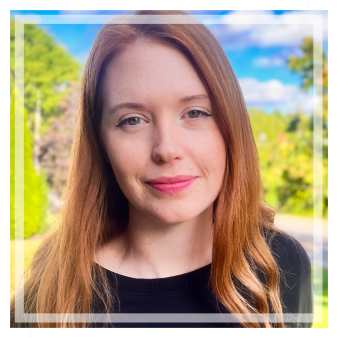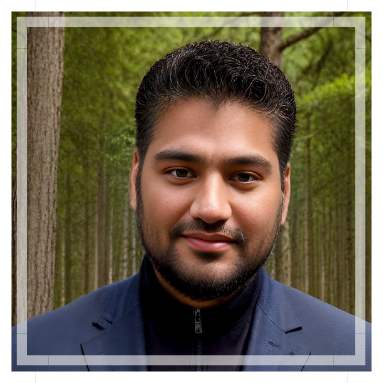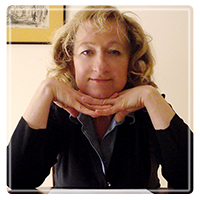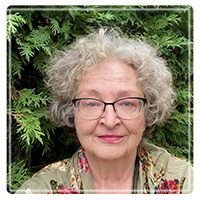
Eating Disorder Counsellor
Erin Gilmour, RP, CCAC
Registered Psychotherapist
In K8V 2M2 - Nearby to Trenton.
Eating Disorders are mental health challenges that manifest in the body, and in our relationships with food. Usually eating disorders start with an honest desire to be healthier, and lead into obsessions, compulsions and behaviour that end up dominating our lives. My belief is that eating disorders are an attempt to cope with stress, trauma and other difficulties and that they should be met with curiosity and compassion.

Eating Disorder Counselor
Sierra Goldfinger, RP
Registered Psychotherapist
Available for Online Therapy
While I do not offer support for eating disorders, at Psychotherapy Collective, we have other therapists who are well positioned to support you. Eating disorders are not really about food. They involve complex emotional issues that have significant impact on ones physical, emotional and social health. If you are preoccupied with your weight, focused on body image, size, or shape, compelled to perform specific rituals around food, obsessive about food, or deem foods as “safe” or “unsafe” to eat you may be engaging in disordered eating. Schedule a free 15-minute consultation with a member of our team today https://www.psychotherapycollective.ca/our-team

Eating Disorder Counselor
Marjan Emami, MD, RTC, MPCC-p
Clinical Counsellor
Available for Online Therapy
I offer a gentle, compassionate, and non-judgmental approach to supporting clients struggling with eating disorders. Together, we explore the emotional pain, subconscious patterns, and unmet needs that often fuel disordered eating, rather than focusing solely on symptoms. In the safety of our therapeutic relationship, clients can reconnect with their bodies, understand the deeper roots of their struggles, and develop healthier ways of coping.

Eating Disorder Counselor
Usman A.T. Khan, RP
Registered Psychotherapist
Available for Online Therapy
Eating disorders can have a profound impact on both physical and emotional health. I offer a compassionate and evidence-based approach to help you address and overcome these challenges. Using techniques such as Cognitive Behavioral Therapy and mindfulness, we work on understanding the underlying causes of your eating disorder, developing healthier eating habits, and improving body image. My goal is to support you in finding balance and building a positive relationship with food and your body. Contact me to schedule a free 15-minute consultation to start working towards recovery and well-being.

Eating Disorder Counsellor
Jessica Stephens, OT(reg.)Ont., MA, RP
Registered Psychotherapist, OT, Clinical Supervision
In K0K 1S0 - Nearby to Trenton.
Disordered consumption/elimination behaviour ranges from starvation, bingeing, purging and eating restriction to newer disorders like diabulimia and orthorexia. Sometimes numbing, existential ambivalence, shame or dread of weight gain accompany an eating disorder. Modern Western culture perpetuates vanity which when combined with perfectionist and overly rigid to abusive early life experience may worsen a variety of eating/elimination imbalances. Clients can often be helped with a comprehensive approaches like DBT (including radical acceptance practice), CBT(cognitive reframing and experiments in balanced self-care ), EFT, hypnosis, and spiritual (eg. 12-step, mindfulness) practices.

Eating Disorder Counselor
Bojena Kelmendi, M.S.W. R.S.W.
Registered Social Worker, Therapist
Available for Online Therapy
Eating disorder can overshadow your life, stealing the joy and self-respect. I have worked with many who struggled with eating disorders and disordered eating and yes, it is possible to fight it and move beyond it. In the therapy with me you become aware of your strengths, your limitations and areas that need strengthening. You discover you are not alone and let the guilt and shame sweep away and become stronger. You learn how to create healthier boundaries, recognize triggers and become emotionally and mentally stronger.

Eating Disorder Counselor
Ryta Marie Peschka, RP
Registered Psychotherapist
Available for Online Therapy
While I do not offer support for eating disorders, at Psychotherapy Collective, we have other therapists who are well positioned to support you. Eating disorders are not really about food. They involve complex emotional issues that have significant impact on ones physical, emotional and social health. If you are preoccupied with your weight, focused on body image, size, or shape, compelled to perform specific rituals around food, obsessive about food, or deem foods as “safe” or “unsafe” to eat you may be engaging in disordered eating. Schedule a free 15-minute consultation with a member of our team today https://www.psychotherapycollective.ca/our-team
You Have Found Honest and Real Therapy for Food Issues in Trenton, ON.
Are you ready to start on a new path? Thank you for visiting our Ontario search of licensed therapists in Trenton who specialize and have experience treating food issues such as anorexia, over eating, food aversions, orthorexia nervosa and bulimia. Food issues affect anyone, both children and adults and can impede our relationships and daily life. Counselling for help with food and eating is a vital component of healthy recovery and restoration. Find the right counselor for eating and food issues in Trenton right now and begin your new life.
Trenton is located in Ontario, Canada. The population of Trenton is 21,972 people. Trenton therapists serve postal code: K8V.
